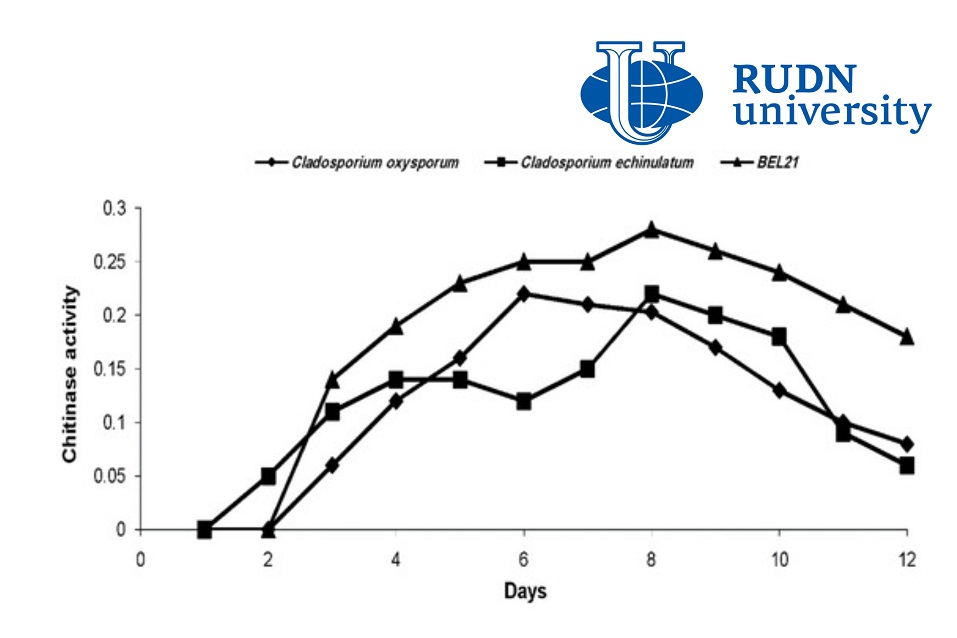RUDN University agronomist found wheat genetically resistant to fungus
Pathogenic fungus Microdochium nivale infects crops, causing the so-called snow mold. Immediately after the snow melts, spots with a “cobweb” of the fungus appear on the leaves of winter crops. Gradually, the leaves die off, and if the lesion is too great, then the whole plant dies, along with the root. In order to prevent the death of crops and at the same time not to use chemical treatment, it is necessary to develop varieties resistant to the fungus. RUDN agrotechnologist discovered several such varieties of wheat.
“Rot of winter crops is observed in plants that spend a long time at a temperature of about 0 ° C in relatively warm soil, without sunlight and under thick snow cover. Under such conditions, plants quickly ‘burn’ nutrients. This weakens their resistance, and they become an easy target for a fungal infection, most often snow mold. Selection allows you to increase productivity and resistance to stress factors. The selection of varieties with resistance to pathogens is the most reliable and cost-effective method of controlling diseases,” Rebukh Nazikh, Candidate of Agricultural Sciences, Associate Professor of the Department of Environmental Management of RUDN University.
An agricultural technologist discovered wheat varieties resistant to snow mold in the collection of plant genetic resources of the All-Russian Institute of Plant Genetic Resources named after N.I. Vavilov. This collection contains up to 1085 samples of crops from each year’s crops. The researchers took data for 15 years and found infected samples in ten of them (the earliest sample is 1978, the latest is 2021). 12 genotypes in the collection were resistant to snow mold. Knowing these genotypes, it is possible to carry out the selection of cereals resistant to the pathogen.
Agronomists have also been able to identify factors that contribute to the development of the disease. They analyzed the weather conditions that were in each of the studied years. Among them were abiotic factors — that is, caused by non-living organisms, for example, snow that fell too early. It weakens the immunity of plants, which is why they cannot cope with the pathogen.
“Abiotic stressors, such as snow covering thawed soil at temperatures
1.0–4.6 °C above normal, were found to be the main cause of the spread. Under such conditions, winter wheat grasses continue to grow, breathe and consume their nutrient stores, and their immune systems are weakened, making plants susceptible to fungal infections. The combined action of abiotic and biotic stress factors leads to excessive crop loss. As a protective measure, we recommend combining agricultural practices with nitrogen fertilization in the spring. The discovered genotypes resistant to snow mold can be recommended to breeders,” Rebukh Nazikh, Candidate of Agricultural Sciences, Associate Professor of the Department of Environmental Management of RUDN University.
The results are published in Plants magazine.
RUDN University engineers have calculated the parameters of a system that can prevent lunar power plants from overheating. These developments will be needed when planning for long-term lunar missions and colonizing the satellite.
Landfills are the third largest source of anthropogenic methane in the world. They account for ~11% of estimated global emissions. Methane is 80 times more powerful than carbon dioxide and is the second largest driver of man-made climate change. Scientists from around the world met at Zhejiang University's Hangzhou campus to determine the best available technologies for recovering energy and materials from non-recyclable residual waste.
The conference “Political Science in a Changing World: New Practices and Theoretical Search”* started out at RUDN University. More than 600 political scientists from Venezuela, Egypt, Finland, Chad, Sweden and 20 other countries present scientific solutions to the challenges a globalizing society is facing. There are more than 70 events on the agenda of the conference organized by the Russian Political Science Association (RPSA).
